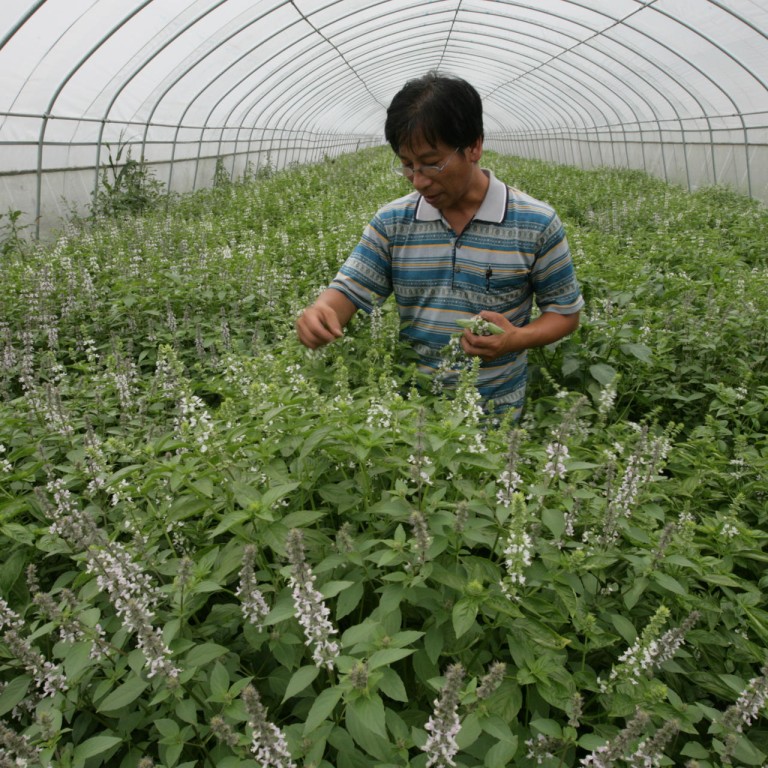
Stop concreting over prime farmland, China's big cities told
Amid fears for China's food security, ministries decree belts of prime arable land off-limits, but analysts doubt it will stop cadres selling plots
Their appetite for land seems to be almost insatiable. In the decade from 2000, mainland urban centres expanded by over 80 per cent, swallowing up vast swathes of surrounding farmland in a frenzy of expansion.
A national land survey found that 130,000 square kilometres of farmland - equivalent to about half the area of Germany - disappeared in the rush for urbanisation between 1996 and 2009.
And it hasn't stopped there. An institute under the National Development and Reform Commission looked into the development plans for 12 provincial capitals last year and found that together they wanted to build 55 new towns, the reported. Shenyang in Liaoning province accounted for 13 of those planned new centres, while Wuhan in Hubei was aiming to build 11.
This kind of unbridled growth has not only led to clogged roads and polluted air, it has eroded the amount of arable land available to ensure food security. But the days of blind expansion might be over with a joint announcement this week from the ministries of agriculture and land and resources of the creation of a permanent arable belt around the nation's biggest cities.
Prime farmland around 14 of the most populous cities - including Beijing, Shanghai and Guangzhou - will be off-limits to commercial development and set aside for agriculture.
The cities in the first batch each have a population of more than five million and have until the end of 2016 to make the change before the concept is rolled out in other parts of the country. Wuhan and Shenyang will be among the vanguard.
Analysts said the containment policy was a necessary and useful way to rein in urban growth but it was not enough to stop the supply of farmland from shrinking.
Professor Zhu Qizhen, from China Agricultural University, said demarcating permanent farmland would help limit cities' unchecked expansion.
"It's good for using the land more efficiently," Zhu said.
But much of the problem was at the local government level, where administrations derived huge profits from selling rural land to developers, pushing food production into marginal or infertile plots in mountainous or swampy areas. Local governments usually requisition farmland from farmers at extremely low prices and sell to real estate developers at big mark-ups.
That's despite national land regulations that say a local government must have State Council approval to requisition certain categories of farmland.
Ding Li, a senior agricultural researcher at Beijing-based Anbound Consulting, said the previous administration led by former premier Wen Jiabao tended to sympathise with the plight of migrant workers and let cities balloon to give them room to work and live. But the new leadership realised that this kind of expansion could not go on.
"We finally figured out that a messy city benefits none of us. That's why megacities like Beijing and Shanghai are now relocating low-end industries, Ding said.
But he said the push to set aside permanent farmland would not guarantee there was a stable quantity of land for food production because the motivation for grass-roots cadres to sell off plots was as strong as ever. The real power to sell land should be in the hands of farmers.
"The protection of farmland should rely on farmers themselves, not the government," he said. "Instead of having no say at all during in land requisitions, farmers should determine if and for how much a parcel of land should be sold.
"In this way developers would need to deal with individual farmers … making it harder for them to buy the land."

